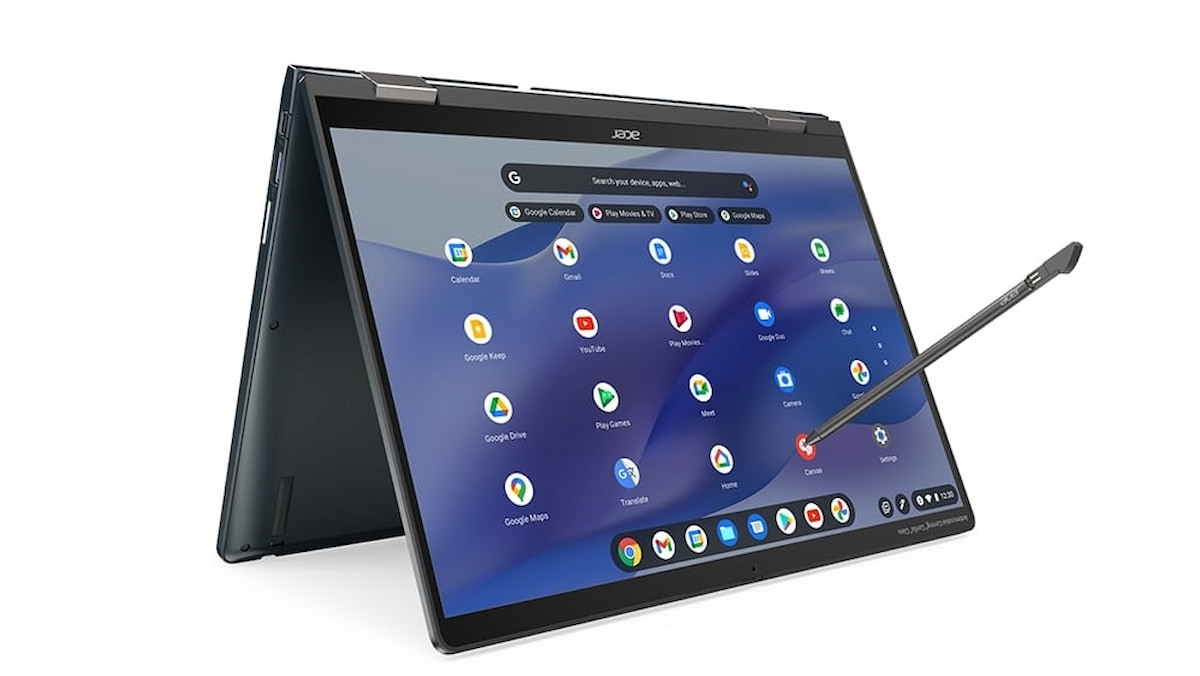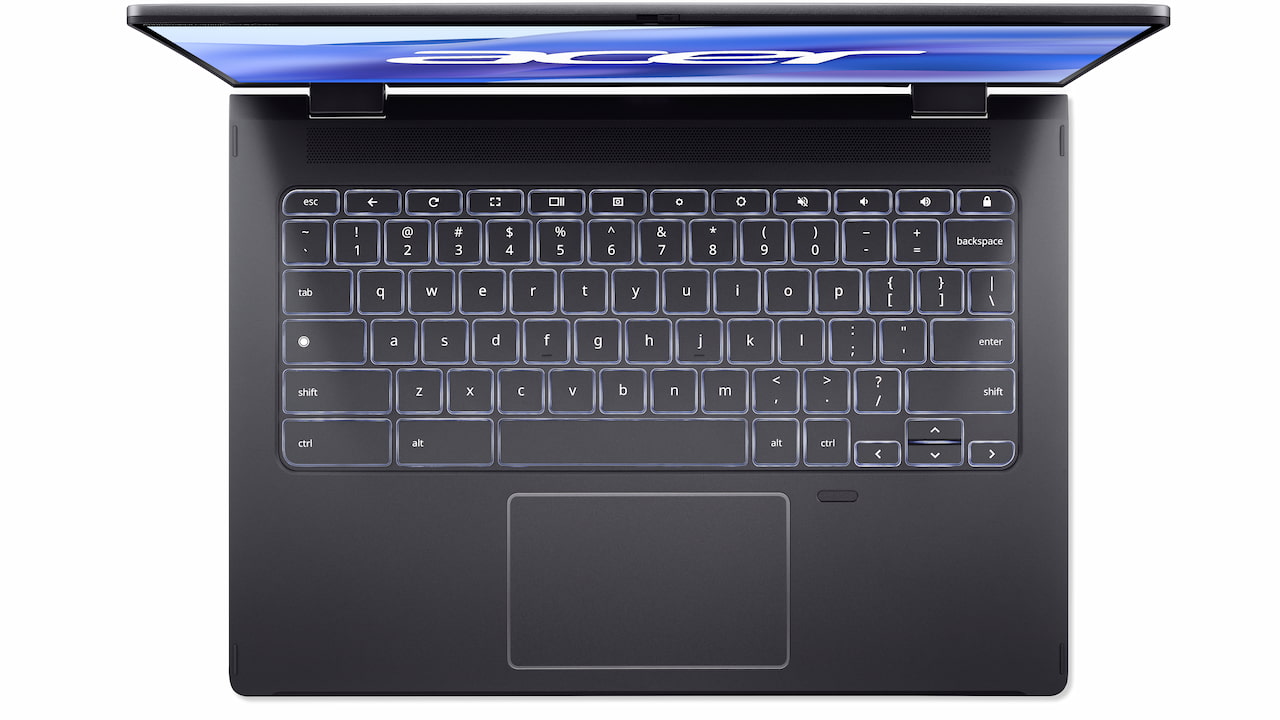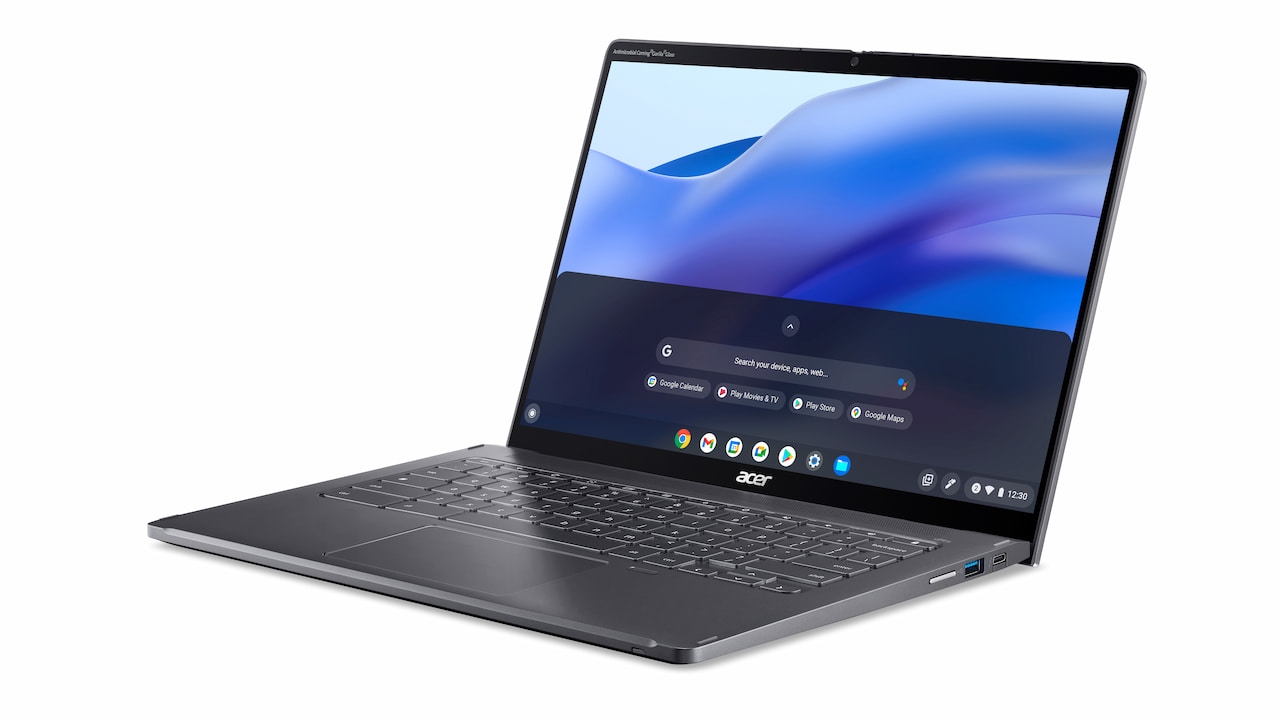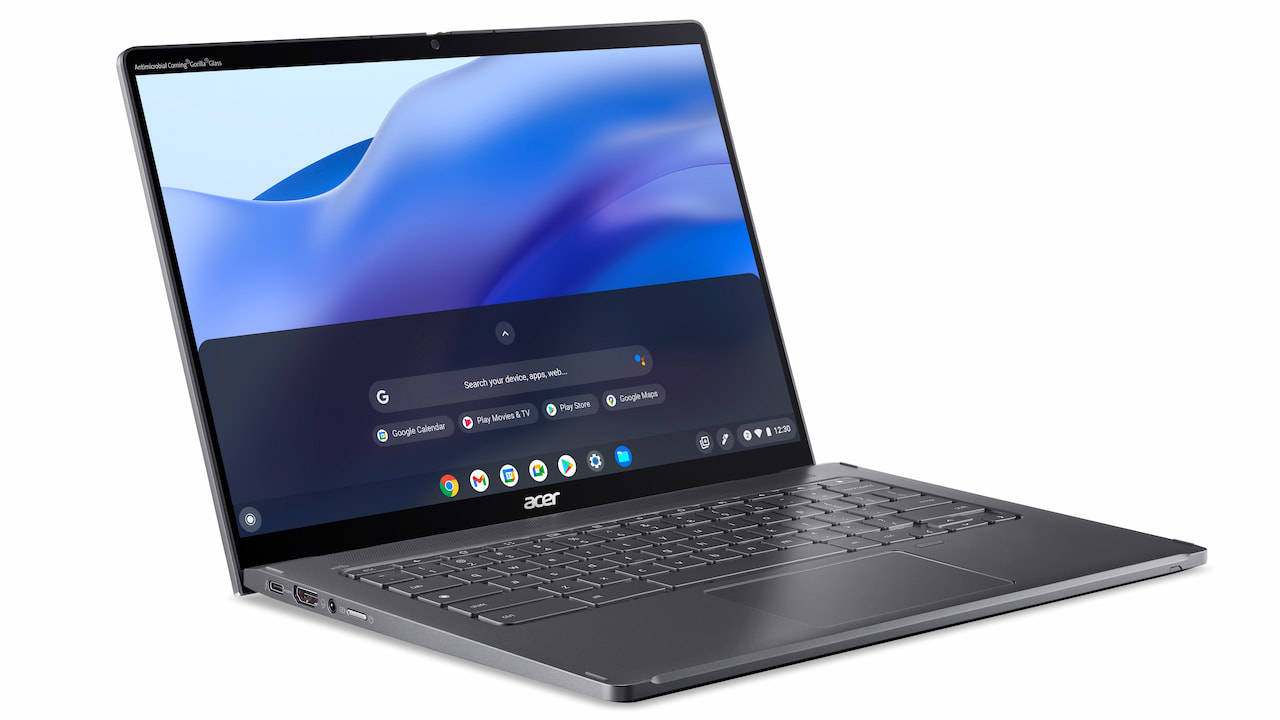Last month, I said the new Acer Chromebook Spin 714 would be my next device purchase. I still stand by that, for the reasons I mentioned. A capable configuration is expected to cost $749 when it arrives in August. I thought that was the base model, but it’s not. There’s a new, cheaper Chromebook Spin 714 configuration on Acer’s site showing a $729 price tag.
I need more than the 8 GB of memory in the $749 model, so this lower-priced version isn’t for me. However, it might be right for you.
It keeps the 8 GB of RAM and the 12th-generation Intel Core i5 chipset — the i5-1235U, to be precise and the Intel Xe graphics. You’ll need the latter if you hope to play Steam games on a Chromebook. And Google hasn’t yet officially certified this for Steam, although I think it will.

So if you’re paying $20 less, what are you giving up? Based on the specifications, it looks to be only two things: The highest resolution display you can get on the Acer Chromebook Spin 714 and a fingerprint sensor.
Don’t be too put off by the screen though. On paper, this less expensive configuration still has a solid display. It’s a 14-inch, 16:10 IPS panel supporting both touch and the included USI stylus. The resolution of 1920 x 1200, however, is a slight drop from the 2560 X 1600 resolution display of the $749 model.
Honestly, I don’t think most people would see a massive difference between the two displays. That’s why I said this cheaper Acer Chromebook Spin 714 might be right for you if this device was already on your radar.

Aside from the Core i5 chip and the same 8 GB of memory as the $749 model, you’re also getting the same 256 GB of local NVMe SSD storage. The same backlit keyboard, Gorilla Glass trackpad, and USB Type-C/Thunderbolt 4 ports are all there too. I suspect many readers won’t be happy about the removal of the fingerprint sensor. That’s a personal decision and frankly, there isn’t much you can do with that in Chrome OS. It would save you time from logging in if you do that a bunch though.
The only hardware specification I still have an open question about on this lesser-priced version is the webcam. The $749 model clearly states it uses a 1080p camera. And I believe that all models will have that same sensor. There’s simply no mention of it on the current spec sheet of the cheaper Acer Chromebook Spin 714 version.

If that 1080p webcam is there and all of the other specs are good enough for you, dropping down in screen resolution to save $20 might be worth it. Again, I heavily use Linux on a Chromebook for my coding education and projects, so I’ll still hold out for a 16 GB model of the Acer Chromebook Spin 714.



3 Comments
Thinking about $750 for a Chromebook, while also thinking about what originally set them apart from all non-Chrome computers that they weren’t competing against…
Obviously ChromeOS has grown up, now requiring equal resources to a PC to run as efficiently. And this is the impending downfall for me, that still a niche option, it cannot replace my PC, has far less versatility and ‘reach’ yet now matches it in price. WHAT?!
I believe that what we most love about ChomeOS has been what it CAN do given how basic and inexpensive it is… I mean, was. I think it is time that Chromebooks create a division, two types: one that is more loyal to simplicity and efficiency –thus a scaled down system that will still work on, for example, my N3160 with 4GB– and another for gamers and coders, who could be considered a niche among broader computer users.
OK, I’m just blowing “steam” here, ChromeOS (and Chromebook) have their fate sealed, like my Kia, almost as good as Totoya/Honda/Mazda and for a little bit less money (less and less each year). 🙂
I’ll take a Kia EV6 over anything from Toyota
First off, MSI gaming Chromebox incoming – https://chromeunboxed.com/msi-chromebox-gaming-chrome-os-steam-stadia/ – and when it arrives I will buy it. (I don’t game, but it will be good for Python pandas and the other stuff that I actually do.)
“Obviously ChromeOS has grown up, now requiring equal resources to a PC to run as efficiently.”
Nope. The Galaxy Chromebook 2 has 4 GB RAM, a Celeron processor (2 cores and 2 threads) and 64 GB storage. Similarly the HP 11a has a 4 year old 32 bit Android smartphone processor and 32 GB RAM. Claiming that Windows or macOS could run on either is folly.
“And this is the impending downfall for me, that still a niche option, it cannot replace my PC, has far less versatility and ‘reach’ yet now matches it in price. WHAT?!”
Unless your workflow requires a discrete GPU this absolutely is not true. Hasn’t been since at least 2020 and possibly even since 2018.
“I think it is time that Chromebooks create a division, two types: one that is more loyal to simplicity and efficiency –thus a scaled down system that will still work on, for example, my N3160 with 4GB– and another for gamers and coders, who could be considered a niche among broader computer users.”
Please look at the Chromium site. Unlike Microsoft and Apple, Google still maintains releases the 32 bit version of their operating systems – chromeOS included – for inexpensive devices. Expensive devices like the one above that you are decrying use the 64 bit kernels. Indeed, Google only last year released 64 bit chromeOS ARM kernels in anticipation of MediaTek MT819x and Qualcomm Snapdragon 7c Gen 3 Chromebooks (which were supposed to launch in 2021 but were delayed to this year because of the chip shortage) because expensive ARM chromeOS devices hadn’t existed since the early days of the platform (when only Apple was making 64 bit ARM CPUs for consumer devices).
People are so determined to forget that the original 2013 Pixel started at $1300. Later Pixel chromeOS devices cost substantially less but never dropped below $600. The (regrettably discontinued) $85 Asus Chromebit and the $275 Lenovo Duet (both of which Google co-developed) aside, Google never intended chromeOS to be a budget platform and there have always been premium and midrange chromeOS devices.